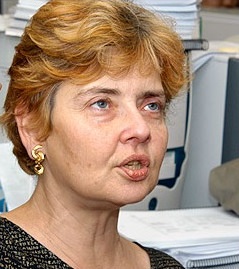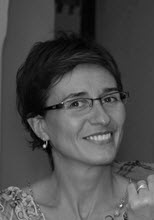

Profa. Claudia Bauzer Medeiros, Ph.D.
State University of Campinas (UNICAMP), Brazil
September, 28th - 9:20am (Brazilian Time)
The Open Science Ecosystem: what needs to be done, and how we can contribute
(in Portuguese)
The Open Science movement is spreading all over the world. Its goal is to allow that researchers anywhere (and anywhen) collaborate through sharing their research outcomes -- such as data, software, models or publications. Though this definition is easy to understand, its implementation faces many challenges at all levels - from scientific policies to e-infrastructures and computational implementations. Open Science practices have become the norm (and even compulsory) in very many countries and, moreover, required upon submission of research proposals to funders. The talk will give an overview of the Open Science movement based on Unesco's may 2021 draft, and discuss how researchers in Computing can contribute to allow the implementation of this movement in practice.
Short Bio: Claudia Bauzer Medeiros (PhD Computer Science - University of Waterloo, Canada) is full professor of the Institute of Computing, Unicamp. Her research is centered on the management of scientific data, in particular the challenges associated with data heterogeneity, volume and complexity, for several real world applications. She was president of the Brazilian Computer Society from 2003 to 2007, and member of many panels and committees, including CNPq and CAPES. She is currently a member of FAPESP~s coordination of the program in eScience and data science, where she coordinates initiatives towards open data policies. She holds several Brazilian and national awards for teaching, research, and initiatives to attract women to computing. She is member of the councils of the ACM, RDA and ACS. Member of the Brazilian Academy of Sciences and the World Academy of Sciences. For more information, check her web page at www.ic.unicamp.br/~cmbm
ORCID: 0000-0003-1908-4753

Daniela Damian, Ph.D.
University of Victoria, Canada
September, 28th - 2:00pm (Brazilian Time)
Verifiability and Transparency in Software Engineering Research: Opportunities and Challenges
(in English)
By adopting SIGSOFT's open science policies, ICSE 2022's Technical Track supports the adoption of open data and open source principles and encourages all contributing authors to disclose (anonymized and curated) data to increase reproducibility and replicability. While the benefits of open science in software engineering are becoming more and more known and accepted by our community, we continue to learn about its challenges and some of the best practices. In this mini-talk I will focus on a particular challenge posed by the ICSE community, namely the (lack of) availability of research data/artifacts to be shared from qualitative and industrial studies. I will also propose some mitigating strategies that help reviewers assess the credibility and trustworthiness of research, especially in the absence of shared empirical data.
Short Bio: Daniela Damian is a Professor of Software Engineering in University of Victoria’s Department of Computer Science, where she leads research in the Software Engineering Global interAction Laboratory (SEGAL, thesegalgroup.org). Her research interests include Software Engineering, Requirements Engineering, Empirical Software Engineering and Global Software Development. She has extensive experience in conducting empirical studies, both qualitative and industrial research studies. Her recent work has studied developers’ socio-technical coordination in geographically distributed software projects, as well as stakeholder management in large software ecosystems. Daniela has served on the program committee boards or Program Co-Chair of several software engineering conferences, as well as on the editorial boards of Transactions on Software Engineering and the Journal of Requirements Engineering. She is serving on the Advisory Board at the Empirical Software Engineering Journal and as the Human Aspects Area Editor for the Journal of Software and Systems. She can be reached at danieladamian.ca.
Linkedin: https://www.linkedin.com/in/daniela-damian-3b080037
Personel Website: https://www.danieladamian.ca

Thomas Durieux, Ph.D.
KTH Royal Institute of Technology, Sweden
September, 28th - 2:30pm (Brazilian Time)
Double-blind and open-science
(in English)
Papers are more and more paired with source code and experiment results to make research more open and more reproducible. This openness brings new challenges for the reviewers and also to the authors. The authors have to make their artifacts double-blind and the reviewers need to handle new external resources during the reviewing process. In this talk, I will discuss those challenges and present Anonymous GitHub, which aims to simplify the anonymization of repositories for authors.
Short Bio: Thomas Durieux is currently a Post-doc at KTH, Sweden. His research interests lie in Software Debloat, Repository Mining, and Sofware Analysis. He is also working on Software Art with the re|thread open collective and maintaining Anonymous GitHub. He did his Ph.D. at INRIA in France and a Post-doc at INESC-ID in Portugal.
Linkedin: https://fr.linkedin.com/in/thomasdurieux
ORCID: 0000-0002-1996-6134
Personel Website: https://durieux.me
 Twitter
Twitter
 Contact us
Contact us
Renan Augusto Leonel
Pedro Henrique de Melo Costa